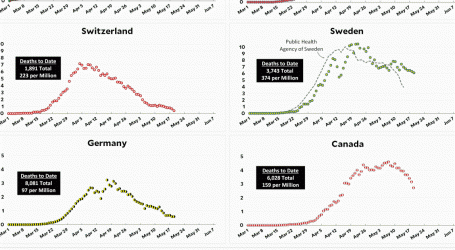Hillary Clinton Takes The Stage At The First Annual NABJ, NAHJ Joint Convention
illary Clinton addressed the first annual National Association of Black Journalists and National Association of Hispanic Journalists joint conference on Friday afternoon, in an effort to connect with journalists of color specifically tasked with telling her story.
Clinton accepted the invitation from leadership in both organizations who have a storied history of inviting past presidential candidates.
Republican presidential nominee Donald Trump declined the invitation, his second time in the past month electing not to address a historically Black organization. In July, he dismissed an invitation to attend the NAACP’s annual conference.
“We’re not his target audience,” said NABJ member and USA Today features editor, Nichelle Smith. “His target audience is the White working class person who feels they’ve been left out of the recovery,” she said.
But Clinton has more work to do as her campaign stretches into the last 90 days. She must offer succinct solutions to minority communities who in the past have accused her of inaccessibility.
There have been hiccups along the way. Some have accused her of pandering to the Black voter and she’s been ridiculed for past endorsements of her husband’s controversial criminal justice laws that disproportionately affect Black and Hispanic men.
Clinton opened her speech acknowledging journalism’s importance in democracy. “Now more than ever we need you to keep holding leaders and candidates accountable,” she said.
It was a message delivered first by Sarah Glover and Mekahlo Medina, respective presidents of the NABJ and NAHJ, who pointed out the unique opportunity journalists of color have in this historic election.
“It’s us that bring the authentic prospective to the story. We fight to be counted and to belong,” Medina tenaciously stated.
“I think this is one of the few times that she’s been asked questions specifically about African-Americans by African-Americans, that was a plus,” said Richard Prince, a reporter for Journal-isms.com.
Clinton moved forward, laying the groundwork for the first 100 days if elected — including details surrounding her economic plan for America, promising extensive job growth.
She also praised President Obama’s leadership, saying that he does not get the credit he deserves specifically for leading the country out of the great recession.
Kristen Welker from NBC News and Telemundo’s Lori Montenegro, opened the questions portion, inquiring about her immigration policies and the never-ending email server controversy. Journalists in attendance were encouraged to tweet their questions to a moderator using the hashtag, #NABJNAHJ2016.
One question posed by a Washington Post reporter bluntly asked: “How will you lead a nation where a majority of people don’t trust you?” referring to a Washington Post/ABC News poll that showed 56 percent of Americans did not trust the outcome of the server controversy.
Some questions were less confrontational, like “The Undefeated’s” Kevin Merida, who asked, “What’s the most meaningful conversation you’ve ever had with an African-American friend?”
But two sweeping issues pertaining to African-Americans were never addressed: law enforcement reform and Black women voters. Police relations with minority communities remain top of mind with the recent shooting deaths of Philando Castile and Alton Sterling. Black women have had the highest voter turnout in the last two elections.
“I think we as journalists should have pressed her harder, we shouldn’t have let her ramble,” said Kerry Charles, an anchor at WGHP.
“What I didn’t hear and want to hear as an African-American women was what specifically she is going to do for this group,” Smith said. “As women generally in society, we range from being invisible, to being workhorses and undergirding things without getting credit for them.”
Hispanic voters share the same frustration; many feel their vote is taken for granted, especially among Democrats. Candidates on both sides must connect with the Hispanic population, projected to grow to 119 million by 2060, according to the latest U.S. Census Bureau report.
Clinton did her best to address immigration and the Hispanic vote, which she acknowledged is overlooked, vowing to endorse DACA and enforce executive actions by President Obama.
She sought to humanize herself at the NABJ/NAHJ Conference, retelling stories of how she baby-sat young Hispanic children whose parents worked in the fields in her hometown of Chicago.
That moment resonated with many Hispanic journalists, including Rigoberto Gomes, a NAHJ member and senior at San Jose State University, who said he saw many reporters tear up.
Melina Telles, a sophomore at San Jose State University, said Clinton’s portion on immigration struck a chord. “I catch myself sometimes tending to ignore the privileges I actually have, comparing to my other family members who are undocumented, which are most of them,” she said.
Overall, many who listened to Clinton’s speech say they would give her a B grade.
“Showing up is 90 percent of the battle. I think we’ll hear more as the campaign goes along,” said, Ingrid Sturgis, a longtime NAHJ member and journalism professor at Howard University.
PHOTO CREDIT: Getty
SEE ALSO:
Will A Trump Or Clinton Presidency Help Improve Community Police Relations?
NEWS ROUNDUP: Hillary Clinton Leads Trump Post-Conventions…AND MORE




